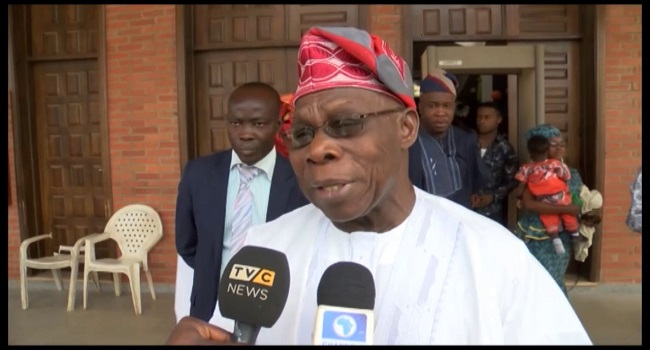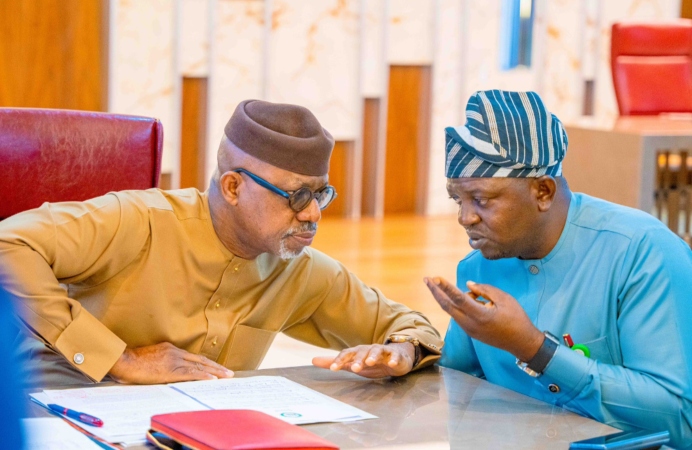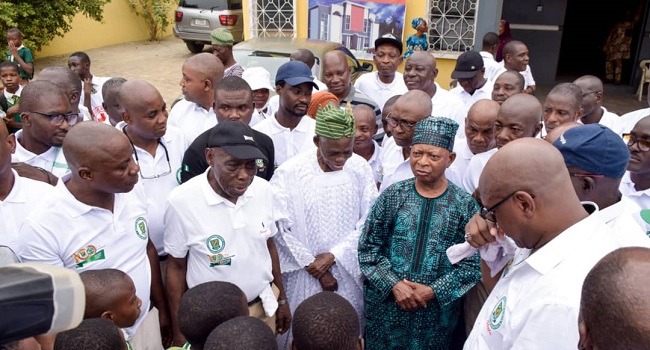
He says it is a way of getting out of the current economic recession.
The former leader made the call in Abeokuta, the Ogun State capital, when the Minister of Trade and Investment, Mr Okechukwu Enelamah, and his entourage paid him a courtesy call before the commencement of the 8th national council on industry, trade and investment currently holding in the state capital.
Aggressive Coastal Shipping System
He, however, asked the Nigerian government to reinvigorate an aggressive coastal shipping system to boost trans-African trade with sister African States from its current 12% to about 22%.
Mr Obasanjo had in September advocated borrowing to finance critical sector of the nation’s economy.
He gave the advice at the opening session of the National Council on Finance and Economic Development, held in Abeokuta, the Ogun state capital with the theme ‘Enhancing Revenue Generation and Obtaining Best Value for Money in Expenditure’.
He explained that there was need to spend less on goods that the nation can do away with, earn more from the manufacturing sector and borrow to finance the economy.
The former president also advocated financial discipline with necessary political will to implement the various policies and programmes of government aimed at taking the country out of the recession.
Mr Obasanjo raised his voice against the constituency projects by members of the National Assembly, saying this must stop.
Nigeria’s economy had slipped into recession in the second quarter of the 2016, with the Gross Domestic Product contracting by 2.06%.
The Naira is on a decline against the dollar, due to rising demand for foreign exchange that is not so much in circulation.
Most products used in the nation are imported, since the poor power supply had stifled the manufacturing sector.
Out Of Recession
Vice President Yemi Osinbajo has said that the recession would be short-lived.
He said changes would come ‘once the Federal Government is able to resolve the issues concerning pipeline vandalism and focus on sustainable diversification policy’.
Professor Osinbajo said that the loss of about 60 per cent of gas and 60 per cent of revenue were largely responsible for the economic challenges Nigerians have been facing.
The Vice President dismissed predictions that the recession would last till year 2020 and assured Nigerians that the Federal Government would not rest on its oars.
Nigerians fears about the recession was cushioned a little when the International Monetary Fund predicted that the economy would grow by 0.6% in 2017, effectively lifting the country out of an officially declared recession.
The IMF in its World Economic Outlook report said Africa’s Biggest Economy’s real Gross Domestic Product is expected to increase marginally by 0.6% with Consumer Prices rising by 17.1%.
Nigeria’s Current Account Balance is however forecast to slump further by 0.4% next year.
According to the Bretton Woods institution, the projected increase in global growth in 2017 to 3.4% hinges crucially on rising growth in emerging market and developing economies.




